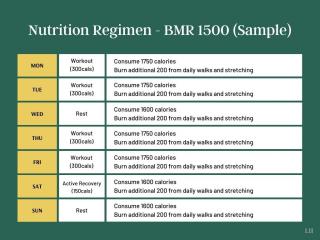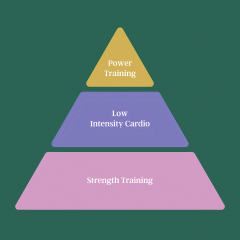You may very well be reading this article because you’re struggling to learn something. Maybe you’re putting off studying for that exam or frustrated with how slowly you’re learning a new language. I’ve dug into a pile of scientific research to help you find ways to learn things efficiently and effectively.
You may not have a photographic memory, but at least you can take some actionable steps to speed up your learning and retain information better.
1. Try Mindfulness
Mindfulness isn’t just sitting on a yoga cushion with your eyes closed chanting “Om.” There is indeed scientific evidence that meditation improves learning outcomes. It decreases anxiety levels and helps people experience the kind of clear-headedness necessary for effective learning.
But there are also other ways to experience mindfulness. You can also try mindfulness exercises that encourage you to open your eyes and see and hear the world in a non-judgmental way.
One of my favorite mindfulness exercises is called “Call It Like You Sees It” from Play Your Way Sane: 120 Improv-Inspired Exercises to Help You Calm Down, Stop Spiraling, and Embrace Uncertainty. As you’re taking a walk, simply point to things you pass and call out what they are: “Tree, grass, frog, sidewalk.” By doing this, you’re practicing being open and present to the world around you instead of being stressed out, anxious, or self-absorbed.
You can also just close your eyes and listen carefully to try to identify as many sounds as possible. Slow down and deepen your breathing to try to hear as much as you can instead of getting carried away with your overthinking.
2. Get Some Sleep
Studies also show a link between sleep deprivation and compromised academic outcome. Simply put, if you’re not getting enough sleep, your learning and retention are going to suffer.
So figure out how much sleep you need each night and stick to a consistent bedtime and wake-up times each day. Your grades and job performance will thank me.
3. Eat Right
If you’re eating a diet that’s high in saturated fat and refined sugar—think processed foods instead of fresh fruits and veggies—you’re not doing your brain any favors. Diets heavy in processed food have been linked to poorer learning outcomes. Researchers found that unhealthy diets filled with saturated fats and refined sugar negatively affect the hippocampus and memory formation, which is essential to fast and efficient learning.
So, if you’re looking for ways to learn faster and smarter, put the gas station snacks down and switch to a diet high in fresh fruits and vegetables, whole grains, and lean meats—fresh over frozen, natural over factory-made.
4. Exercise
Another way to learn better and faster is to make sure you’re getting some exercise throughout the week. Just like getting enough sleep, exercising is a hippocampus booster. That means your brain will be better able to retain information.
One study with mice showed that adding exercise after over a year of being sedentary reversed degeneration of the hippocampus by about 50%. That means even if you haven’t been getting exercise lately, it’s not too late. Aim for at least three aerobic exercise sessions a week that last at least 30 minutes per session to keep your hippocampus healthy.
5. Focus on One Thing at a Time
A lot of people think they’re good at multi-tasking. I hear this a lot. People think they can listen to music and scroll through TikTok while listening to an online lecture on genetics. Turns out, this is wishful thinking. If you’re looking for ways to learn faster and smarter, one of the easiest is to close all your tabs and do one thing at a time.
One way to think about this is what’s known as the cognitive bottleneck theory, which states that we cannot attend to all of our sensory inputs at once. We might have the TV on and that online lecture and be listening to music while talking to a friend, but not all of those inputs can be consciously attended to. There’s a bottleneck where some of the inputs just don’t make it through to conscious thought.
In one study, the cognitive bottleneck theory was confirmed, which means that students were not able to retain as much information or learn as efficiently when they were attempting to multi-task. So, keep it simple, limit distractions, and learn one thing at a time.
6. Don’t Worry About Learning Styles
You may have read about learning styles and how knowing your learning style can help you learn better. Well, it turns out there isn’t actually any scientific evidence that confirms that learning styles improve learning outcomes.
Learning styles come from Neil Fleming in the 1990s and have gained in popularity in recent decades, but that doesn’t mean the theory actually improves learning. It’s fine to know whether you prefer visual, audio, kinesthetic, or reading/writing inputs, but don’t forget that learning styles are just that—preferences.
Instead of trying to force yourself to learn everything with your preferred style, you should focus more on matching the challenge with the learning style. If you’re trying to memorize vocabulary for a written quiz, it makes the most sense to mix reading/writing with visual learning. If you’re trying to learn how to have a conversation in a new language, you may want to stick with audio and kinesthetic styles.
Don’t be too worried about learning styles. Instead, mix it up and try all different styles.
7. Try Spaced Repetition
Spaced repetition can help you learn better. Spaced repetition is a system where you quiz yourself to see if you know something or not. It works great as either a physical or digital set of flashcards—when you need to learn lots of small pieces of information.
All the information you get correct goes in one pile, and the information you don’t know goes in another. You quiz yourself on the information you got wrong more frequently than what you got right. Eventually, the information you keep getting correct is spaced out more and more until it is in long-term memory. At that point, you’ve truly learned it.
Spaced repetition has been proven effective in scientific studies. It helps with memory and problem-solving skills and leads to vast improvements in long-term learning. One spaced repetition system is called Anki, and you can find information online about how to make your own physical Anki flashcard system or download an app that will create a digital Anki system for you.
8. Try Mnemonic Devices
Another trick to learning faster and smarter is to try mnemonic devices. This is simply the process of chunking information by using initials or acronyms.
The classic is ROYGBIV. If you can remember the mnemonic device ROYGBIV, it makes it much easier to recall the colors of the rainbow: red, orange, yellow, green, blue, indigo, and violet. The idea is that it’s easier to remember one thing than seven, and by using the first letter of all the colors, you give yourself a clue to then recall the colors.
Research confirms that mnemonic devices help speed up retention and even improve formal reasoning—never a bad thing.
9. Gamify Your Learning
Gamification is when you turn something that’s not a game into something that’s more like a game by adding game elements such as points, competition, and rewards or goals.
One example of gamification is to turn a household chore into a game by racing against the clock or competing against someone to see who can clean a room faster.
You can also gamify learning. Turn it into a competition. Motivate yourself by adding a scoring system or a time limit. Studies show that gamifying learning boosts motivation and engagement, academic achievement, and social connectivity.
10. Improvise
Next is improvisation. Now, I don’t just mean make stuff up as you go. Improvisation actually has principles to follow that help everyone be on the same page. By agreeing with each other’s ideas and adding to the reality that’s being established, improvisers build a level of trust with each other that has incredible benefits.
Improvising or just adding improv principles to your everyday life helps reduce anxiety and boost creativity and collaboration. In one study, high school students wrote more after participating in an improv workshop
So, you may want to try improv thinking to boost your learning, which means embracing mistakes, agreeing and adding onto ideas, and not being negative or judgmental.
11. Reflect
Another strategy to learn faster and smarter is to make reflecting part of your process. In one study, students who were prompted to reflect on their progress outperformed students who did not integrate reflection.
So, if you want to learn faster and more efficiently, make sure to reflect on your progress periodically. Ask yourself some questions and set some achievable goals. Is your current plan working? Why or why not? What are you still struggling with?
This way you won’t just keep repeating the same inefficient or ineffective habits. Instead, you’ll be able to make changes, so you can improve your learning outcomes.
12. Seek Feedback
If you want to boost the benefits to your learning more, incorporate other people’s feedback in addition to your own self-reflection. Research shows that when feedback is combined with reflection, students achieve even more pronounced benefits to their learning.
So, seek out a mentor or advisor who can give you honest and productive feedback, so you can create the best plan to improve your learning.
Final Thoughts
Learning is a complex process that requires you to manage your stress, take care of your physical health, and create and refine learning plans to achieve an optimal amount of success.
Of course, there are tricks to help you speed up your learning like using mnemonic devices and spaced repetition. But at the end of the day, a more holistic approach to overall health and wellbeing will get you further than a hack here and a hack there.
More Tips to Learn More Effectively
Featured photo credit: Kelly Sikkema via unsplash.com





























































